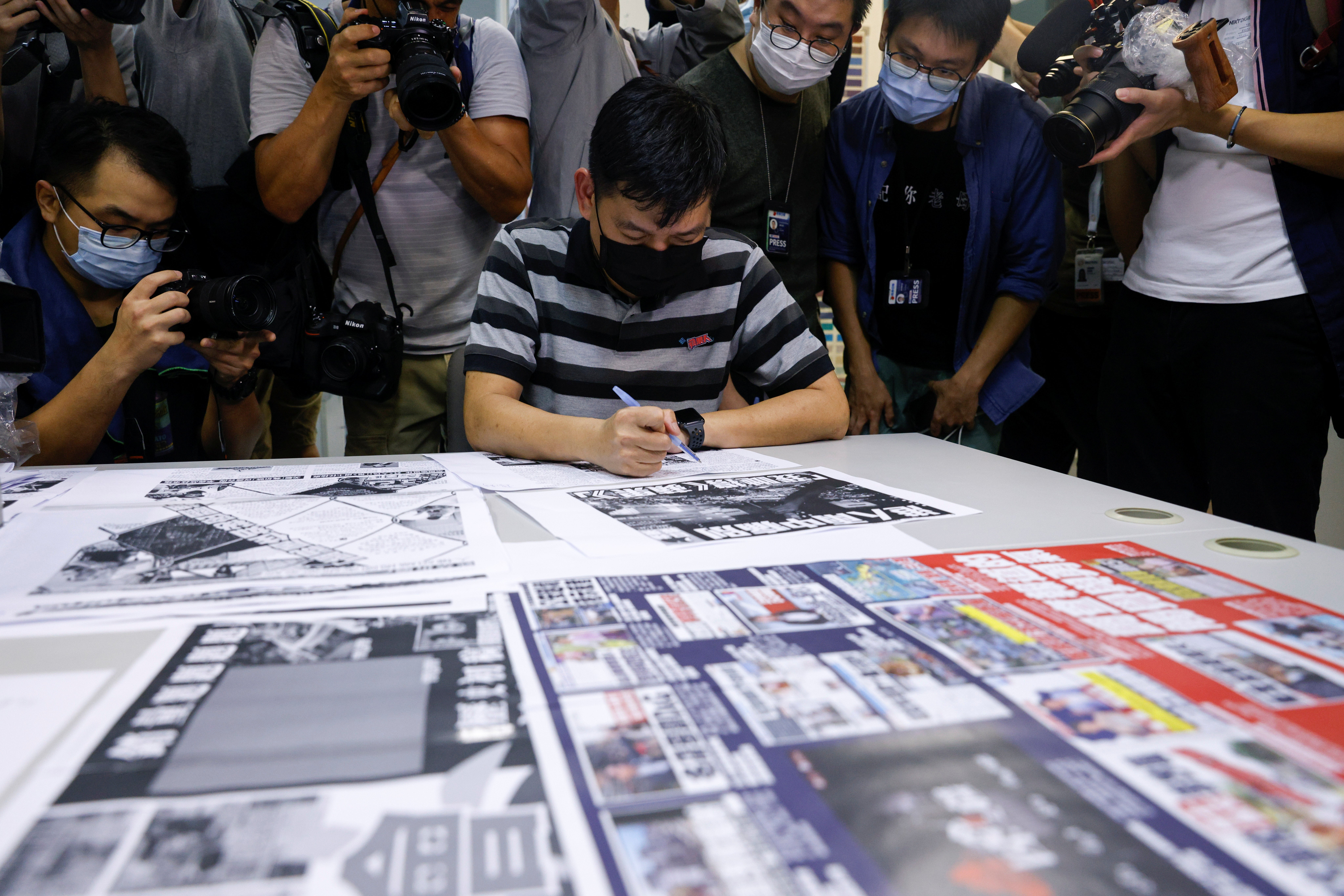Apple Daily: The ‘death’ of Hong Kong’s pro-democracy newspaper could begin an exodus of media outlets
With Apple Daily closing, William Yang asks if other media organisations will now feel pressure to close in Hong Kong


Less than a week after a dramatic raid of its newsroom and the freezing of its assets, Hong Kong’s most famous pro-democracy newspaper Apple Daily announced on Wednesday that it would publish the last edition of its physical paper on Thursday, and cease operations and online news updates by midnight on the same day.
The announcement brought forward by two days the original plan, made by the board of directors of its parent company Next Digital, which was to publish the paper’s last edition on Saturday.
“Considering employees’ safety and the remaining manpower in the newsroom, we have decided to cease operation after midnight on Thursday and publish the last physical paper on the same day,” the paper wrote on its website.
Some observers pointed out that the government’s move to freeze almost all of Apple Daily’s assets was effectively a ban on the entire publication. “You can’t arrest the chief editor, the most senior executives of the publication, and still expect them to be able to operate,” said Kai Ong, a researcher at Amnesty International. “The government is banning Apple Daily because it’s critical of its policies.”
Louisa Lim, a senior lecturer at the University of Melbourne and a journalist who has written extensively about Hong Kong, said the closure of Apple Daily was a massive blow for media freedom and media diversity in the former British colony.
“Apple Daily has been the boldest and most outspoken pro-democracy newspaper in Hong Kong,” said Lim. “It’s also very popular with readers. On certain occasions, Apple Daily will run a different front page from all the other papers in Hong Kong.”
Ong and Lim both refer to the latest arrest of an Apple Daily columnist as “incredibly chilling”, as it showed that writing an opinion in a newspaper can get someone arrested under the National Security Law (NSL). “People working for local and international media outlets and people talking about anything related to Hong Kong in interviews can all be targeted under the law,” said Ong.
Alongside making arrests based on articles published by media outlets, Ong said, the possible passage of a fake news law and the government’s tendency to discredit critical coverage as “fake news” are a reflection of the Hong Kong government’s determination to tighten its control over the media.
While it’s clear that the government wants to weed out opposition voices in the media, Lim said there are no clear red lines for journalists under the NSL. “You can say there are no red lines or the red lines are everywhere,” she pointed out.
“From what the officials said last week, It’s not clear whether the articles that led to the freezing of the assets and the arrests were opinion pieces or news articles. I think it’s really hard for journalists to navigate this new landscape because no one knows where the red lines are,” she added.
Kai Ong from Amnesty International said that in future, it will be really hard for journalists to hold the government accountable or report on anything critical of the government without feeling frustrated or worried. She thinks it’s all due to the limitless nature of the NSL.
“Journalists won’t know whether what they say or do will violate the NSL or not,” she said. “When they are doing journalistic work, there will always be the question at the back of their mind all the time. That can lead to potential self-censorship.”

A possible exodus of other media outlets?
Journalists are not the only ones who will be affected by the impact of the NSL on the media.
Last month, former pro-democracy lawmaker Claudia Mo was denied bail after Hong Kong’s High Court considered WhatsApp messages between her and journalists from major international news organisations to be proof that she could continue to jeopardise the city’s national security if she were released on bail.
“All of these moves have a singular aim, which is stamping out any space for expression of other opinions,” said Lim.
In the long run, Lim thinks it’s possible that international media outlets with regional headquarters in Hong Kong will try to reduce their operations in the city. Last July, The New York Times announced that it would relocate its digital news operation in Hong Kong to South Korea, citing the uncertainty that came with the NSL as the main reason.
“In all honesty, maybe this is also something that the Hong Kong and Beijing government might have in mind,” said Lim. “Is it really in their interests to have coverage of what’s happening in Hong Kong?
“If other news outlets move out of Hong Kong, we will have less coverage of the city.
“We’ve seen this trend in China as well, where foreign correspondents have been forced out and there is less coverage from China. I think we are likely going to see that trend being replicated in Hong Kong,” she added.
Join our commenting forum
Join thought-provoking conversations, follow other Independent readers and see their replies
Comments
Bookmark popover
Removed from bookmarks